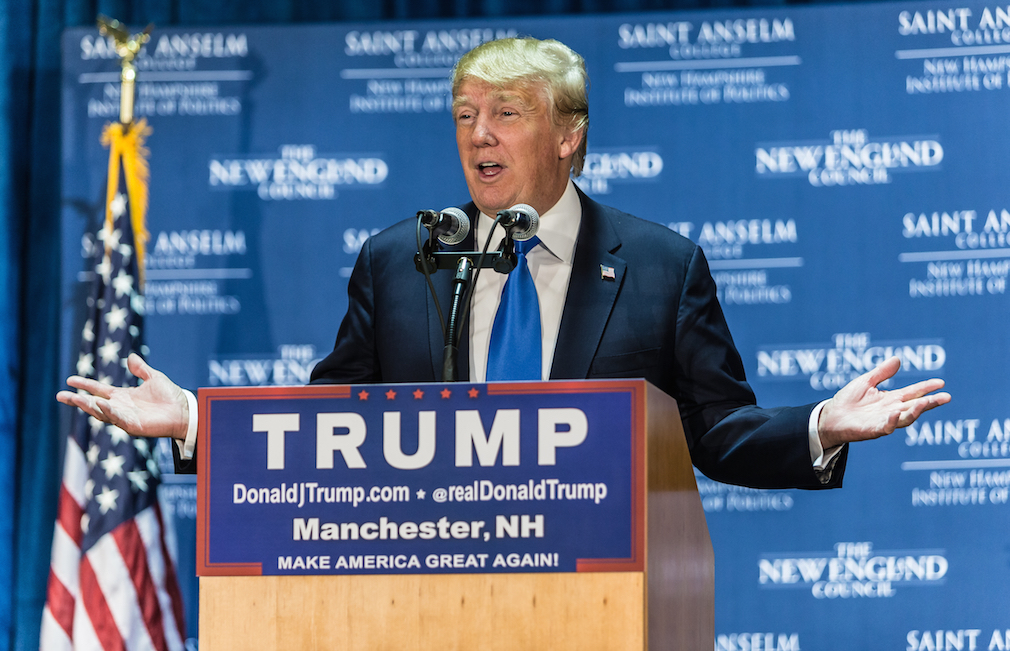President Donald Trump is quadrupling down on his ire toward the Federal Reserve and its rate hikes.
On the tarmac at Erie International Airport, Trump blamed Wednesday’s market meltdown on the Fed, telling reporters, “The Fed is making a mistake,” and saying, “I think the Fed has gone crazy.”
These are bold words for a president to levy at the Fed, and though many presidents have taken issue with the Fed raising rates – especially ahead of a midterm election – not many have dared to go so far as Trump and question the Fed’s sanity.
The stock market has been taking a beating for the last 6 days, taking a 3% tumble yesterday in the face of rising rate fears.
Trump has been incredibly vocal this year about his disapproval of the Fed’s repeated decisions to raise rates, saying that he disagrees with the idea that economy needs to be reined in quite as stiffly as it has been.
“The rise in Treasury yields has been the primary catalyst for the selloff in equities,” Steven Friedman, senior economist at BNP Paribas Asset Management, told The Wall Street Journal.
“Equity investors are growing concerned that the [Fed]’s projected rate path will choke off the expansion,” he added.
But, in a historical context, the country is still technically in a low-interest rate environment.
Following the most recent rate hike, Fed Chairman Jerome Powell said he and the Fed feel that incrementally raising interest rates is the best way to respect the Fed’s dual mandate of maintaining economic growth while curbing inflation.
Currently, inflation is right where the Fed wants it to be, at about 2%.
By all measures, the U.S. economy is still exhibiting strong fundamentals with robust employment and gross domestic product gains. It remains to be seen how the business community and the Fed will respond to these concerns over rates.
A new Capital Economics report indicates that in light of recent stock market volatility, the Fed will need to stop raising rates and possibly begin cutting them as the U.S. economy enters a slowdown within the next few quarters.
Capital Economics predicts that economic growth will have tapered off significantly by mid-2019 and the S&P 500 will drop 15% from its recent peak.
“As slower growth causes the Fed to call time on its tightening cycle and raises the prospects of rate cuts further ahead, we expect the 10-year Treasury yield to pull back to about 2.5% by end-2019, from 3.2% now. This would probably cap any increase in high-grade sovereign bond yields outside the U.S. too,” the report said.






